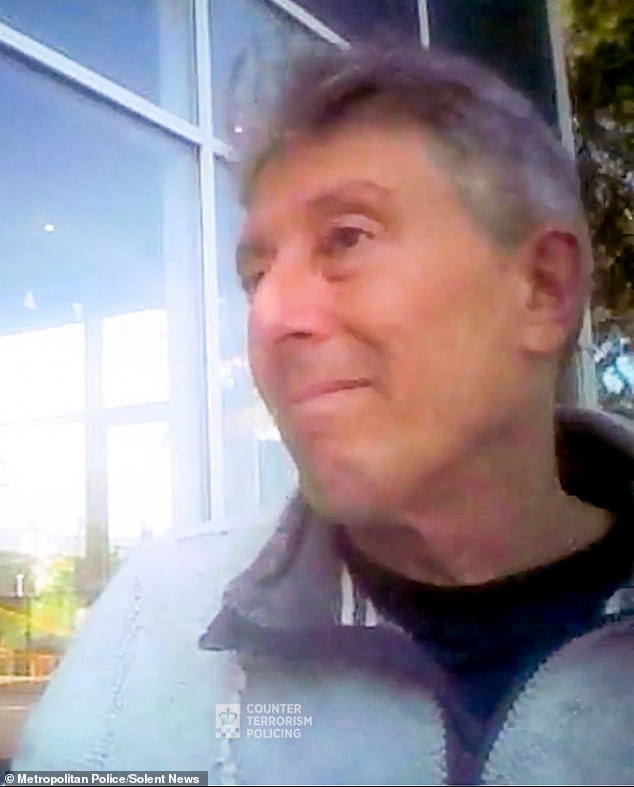It’s one thing to enjoy spy novels and daydream about secret missions.
But for 65-year-old Howard Phillips, those daydreams have landed him in a very real courtroom, facing serious charges that could change his life forever.
The retired insolvency professional, once just a regular man from Harlow, Essex, is now accused of trying to leak sensitive information to people he believed were Russian spies—but who were actually undercover British police.
A Coffee Shop Meeting With a Twist
Footage played to jurors at Winchester Crown Court revealed what prosecutors claim was a covert handoff outside a Costa Coffee in West Thurrock.
The meeting took place in May 2024, and Phillips appeared to greet the fake Russian agents warmly—completely unaware they were actually UK operatives posing as members of Russian intelligence.
According to prosecutors, Phillips handed over a USB stick packed with sensitive details about Grant Shapps, the UK’s former Defence Secretary.
It reportedly included Shapps’ personal contact information and even the location of his private aircraft.
“I Have Something You Might Want”
In another secretly recorded meeting that took place the month before, Phillips is seen at the London Bridge Hotel speaking with the undercover agents.
In the footage, he appears to pitch himself as a willing asset, suggesting that he had something of potential value for them.
He casually hinted, “I have something, I don’t know if you want it or don’t want it,” before revealing that he had the ex-defence secretary’s personal information.
Prosecutors say he then handed over the USB, describing the contents as possibly useful, but leaving it up to the agents to decide.
When asked how he came by the information, Phillips explained that he had been invited to a social gathering at Shapps’ house years ago, when Shapps was a local MP.
Dreams of Espionage and Unfinished Ambitions
Phillips’ statements during the meetings painted the picture of a man yearning for excitement.
He told the agents he had retired years earlier and done some traveling, including to Moscow.
“I need to be earning money,” he explained, admitting he didn’t want to return to a typical 9-to-5 job.
He described how his thoughts drifted toward the idea of becoming involved with Russian intelligence—not out of ideology, but seemingly from boredom and financial need.
He even mused about how such a partnership would be mutually beneficial: “We all help each other and we look after each other, we become a family.”
From Arsenal Dreams to Secret Codes
Phillips wasn’t shy about embracing his spy fantasy.
In a bizarre twist, he reportedly suggested using “mother” as a coded term for “Moscow” during the chats with his supposed handlers.
His ex-wife, Amanda Phillips, also testified during the trial.
She portrayed him as kind-hearted and caring—but admitted he had an active imagination.
She recalled how he once wrote to Arsenal Football Club offering to become their manager, despite having no qualifications.
According to her, his fascination with spy work wasn’t new; he had long dreamed of being like James Bond.
The Charge and the Denial
Despite the mountain of recorded conversations, Phillips denies any wrongdoing.
He claims his original contact with the Russian embassy was actually an attempt to expose Russian agents and support Ukraine, not help the enemy.
He’s currently on trial under the National Security Act, accused of conduct intended to assist a foreign intelligence service.
The jury has now retired to deliberate on its verdict, and the case is being overseen by Justice Dame Cheema-Grubb.
What Comes Next?
As the trial continues, the central question remains: was Howard Phillips genuinely trying to become a spy for Russia, or was this all a misguided attempt at playing James Bond in real life?
The outcome of the jury’s decision could not only determine Phillips’ fate, but also send a strong message about the serious consequences of dabbling in espionage—real or imagined.
